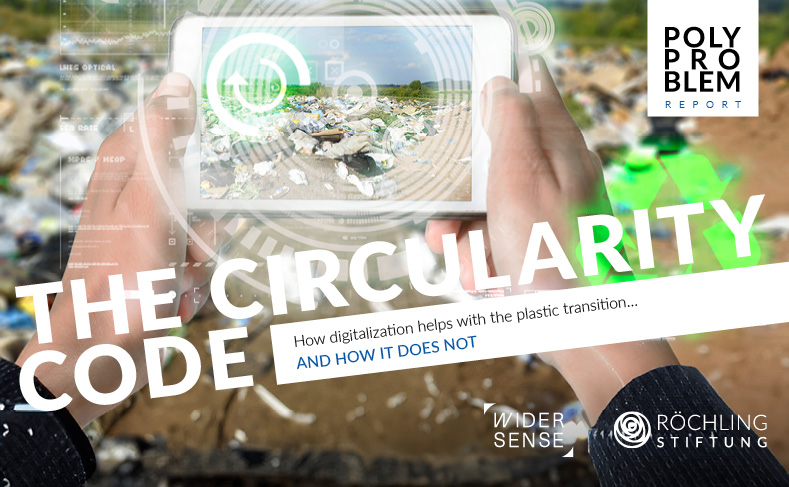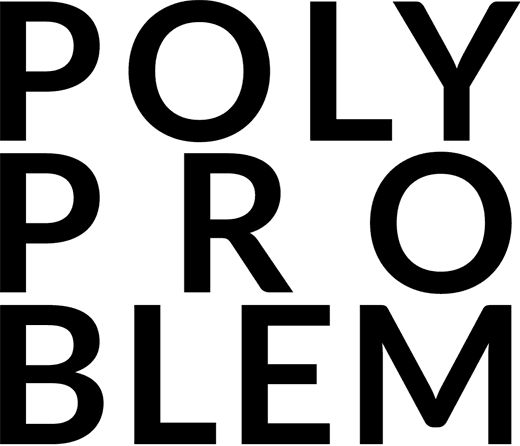The Circularity Code
How digitalization helps with the plastic transition...and how it does not

Due to their complexity, plastic products pass through many stages from production to use and finally to recycling. A lot of data can be generated in the process.
But what is the actual potential behind such data and digital tools for the transition to a circular economy and the avoidance of plastic waste emissions?
In discussions with various stakeholders, we took a closer look at a range of applications along the plastics value chain and the role of AI, robotics, the Internet of Things (IoT) and blockchain – from digital support in design, the overall ecological assessment of packaging and the digital product passport to new, digital possibilities in waste management and recycling.
The new POLYPROBLEM report by the Röchling Foundation and the consultancy Wider Sense highlights the opportunities offered by digital technology in the plastics transition and the current challenges of using this technology more systematically. In the end, it becomes clear that the viability of the „Circularity Code“ is not a question of technology, but of attitude and willingness to cooperate.
